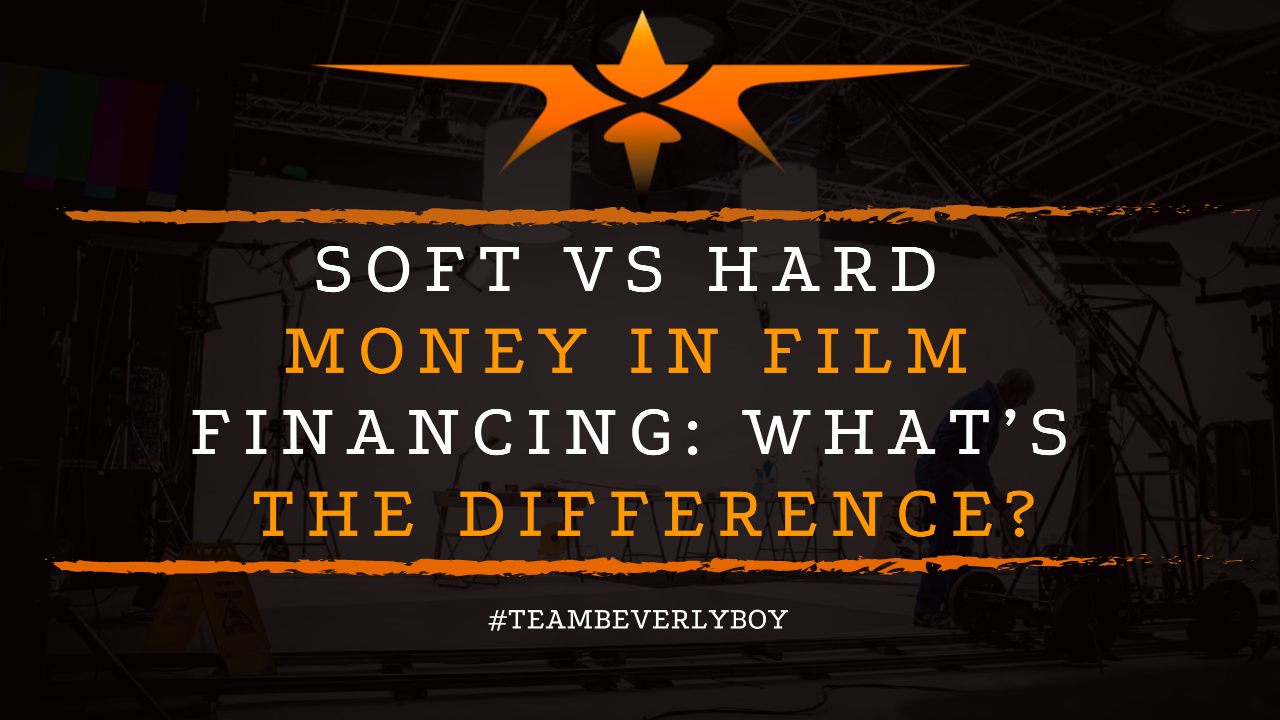
Soft vs Hard Money in Film Financing: What’s the Difference?
Understanding the different types of film financing and the way that some loans or investments must be paid back. While others do not can be challenging even to someone that’s been around the block and spent some time in the industry. When it comes to financing, soft vs hard money in film represents the unique categorization of various types of financing that do, or do not, have to be paid back. But what’s the difference between soft vs hard money in film financing?

The shortest, simplest explanation is that soft money doesn’t have to be repaid whereas hard money will need to be paid back.
Generally speaking, when it comes to hard money, an investor will likely require not only the repayment of the investment.
But interest or some other additional profits on top of the initial investment that was made.
Soft Money in Film Financing
In film financing, soft money is generally a reference in use to describe film financing that does not require the film to produce a profit. But is based instead on things like tax credits, location incentives and rebates, film grants.
And other forms of financing from cross-promotion, donations in-kind, and product placement. Because soft money doesn’t have to be paid back. There is far less focus on the ability of a film to produce a profit in the establishment of this type of financing.
Types of Soft Money Film Financing
When it comes to the financing of a film using soft money the producer will find a number of opportunities. Some of the most common include grants, loans, and subsidies.
Every state has film grants or soft loans that have special rules. In which they generally will not be necessary for payment. Talking with the local film commission can help you find soft money financing opportunities that are ideal for your production project.
Soft money financing for film projects also include tax incentives and various funds. Which are provided through state, federal and foreign entities.
Many filmmakers choose to engage film tax credit financing. Or the use of soft money film financing. As a means of engaging their production with the federal incentives or state tax credits that might be readily available to them.
Additionally the following soft money financing options may be available for your film:
- Product placement incentives.
- Exposure deals in which services are provided in exchange for a part.
- Crowdfunding through websites that accept crowdsourced investments.
- Cross-promotion with other brands.
- Donations in-kind.
- Filming in countries with lower exchange rates.
Ideal Considerations
As you can see, when it comes to soft vs hard money in film financing? The soft money financing options that are made available to filmmakers can vary greatly.
And will most certainly require that the filmmaker do their homework in finding the right solutions that are available in their locale and for their production needs.
For filmmakers, maxing out soft money financing options first is an ideal consideration. As this money generally does not require payback. Investors that see you have taken the steps to secure soft money investments that are right for the production will see the hard work.
And may be more likely to consider allocating their own funds for the project. In fact, securing soft money proves credibility which will result in an investor being more trusting of their decision to invest in the project in the future.
Hard Money in Film Financing
Unlike soft money, hard money in film refers to funds that are to be repaid. A hard money investment will typically be made commercially. And may include some kind of claim or requirement. Such as a line that will be imposed if the repayment is not made.
Profits or interest will likely be required as part of the repayment nature when hard money loans, venture capital investments or similar financing is provided and a recoupment plan will be outlined in the contract.
Types of Hard Money Film Financing

Unlike soft money, hard money has to be repaid. Naturally, there are tons of different types of hard money film financing that could be secured. Depending on the individual needs of the project and the steps that the producer is willing to take.
However, since hard money film financing has to be repaid, it’s important to negotiate all hard money deals to secure the absolute lowest possible rates and best options available.
Hard money investments include things like securing pre-sale agreements, distribution deals, and financing through a bank.
In fact, anytime the filmmaker secures financing or investments that require a percentage increase on the investment to be paid back, or interest to be repaid. The type of film financing that is involved is considered hard money.
Additional types of hard money financing include:
- Film distribution deals.
- Gap financing.
- Split rights deals.
- Individual investment financing.
- Passive investment financing.
- Negative pickup deals.
- End user financing agreements.
- Advanced user financing agreements.
- Pre-sale agreements.
Profit
Because these forms of financing are paid back. It’s important to negotiate terms that are most suitable. And will keep as much of the profit in the business as possible. But take note, the investor will be seeking to achieve the same.
Soft vs Hard Money in Film Financing
Now that you fully understand the difference between soft vs hard money in film financing. It’s important that you carefully consider how each of these financing opportunities can be put to use for your project.
Without putting too much strain on the profits that your film may turn in the future. Thus, it’s always best to do a lot of research, and negotiate, ahead of time. So that you can not only find the soft money opportunities that are available to you.
But also so that you can negotiate the best possible rates for any hard money investments that are made for your project.
Do Thorough Research
Want more information on soft vs hard money in film financing and what it means for your production? The starting point is to do your homework. Find the various soft money options that could be suitable for your film production.
And secure as much funding for the project in this manner as you can. Take your time and wait to begin the search for hard money. Until you’ve exhausted all soft money options that may be available to you.
In Summary
When it comes to securing hard money, you need to carefully plan and think very firmly about the steps you will take.
You certainly do not want to consider hard money. Unless you have to because every hard money investment that is made into your project could result in lower overall percentage ownership or profits in the future.
What’s the difference between soft vs hard money in film financing? Soft money is not repaid and represents your ideal first choice in funding. Whereas hard money does have to be repaid and should be a secondary choice.



